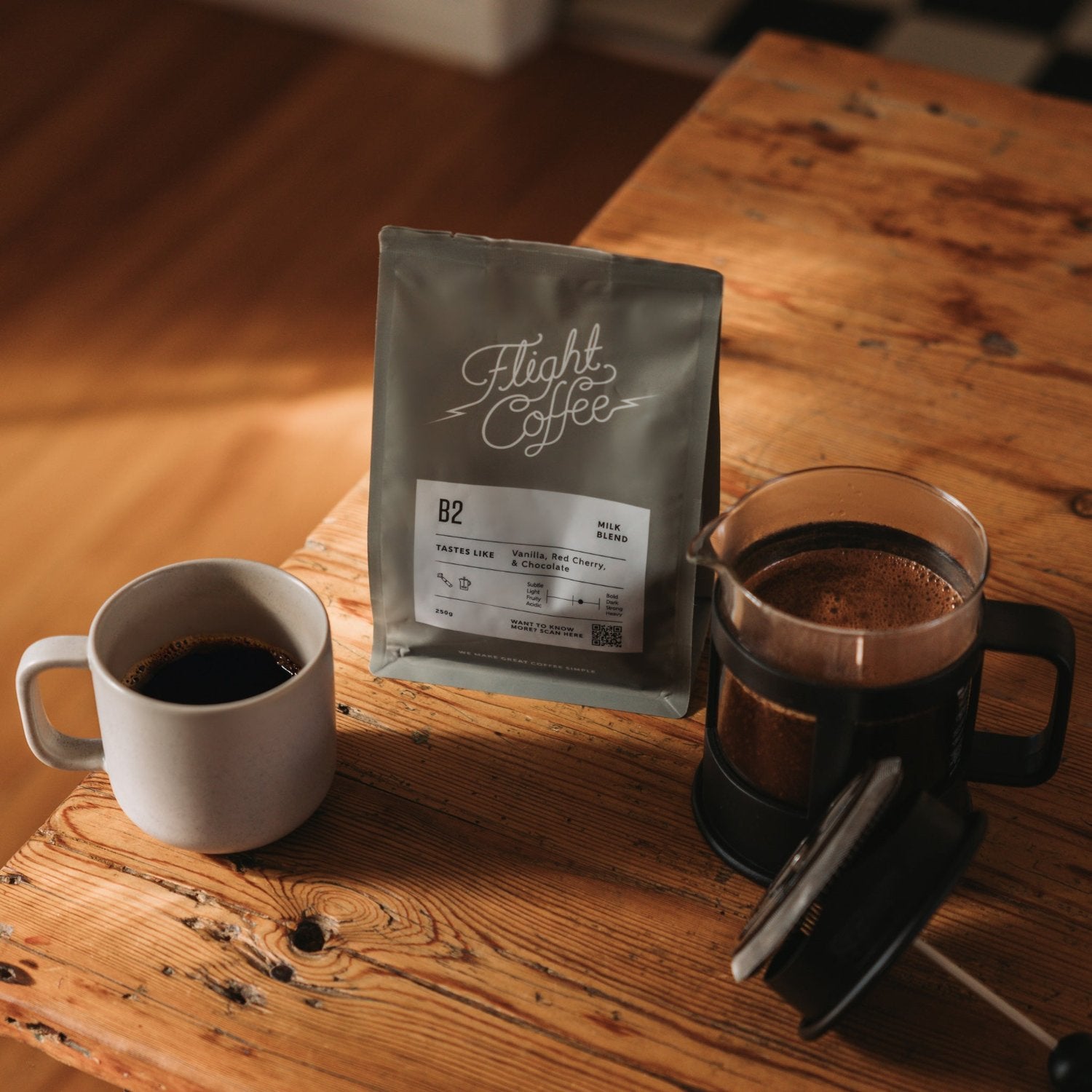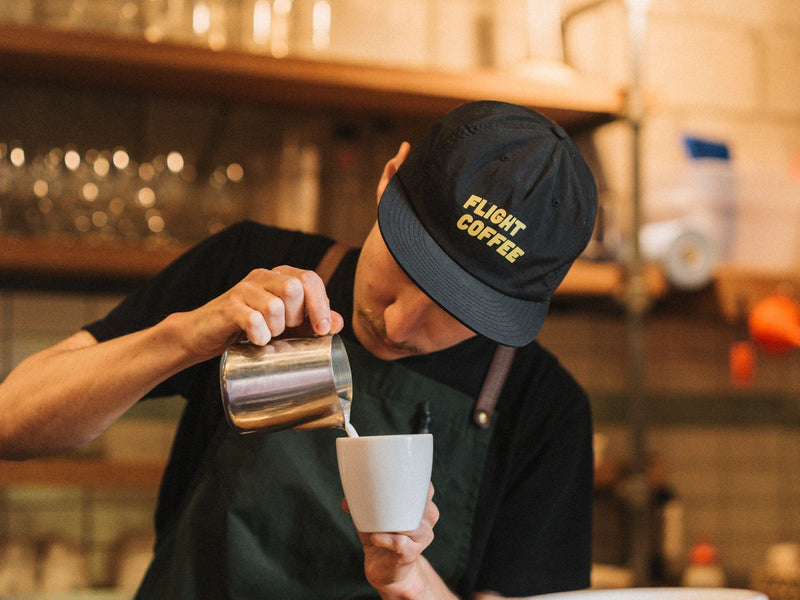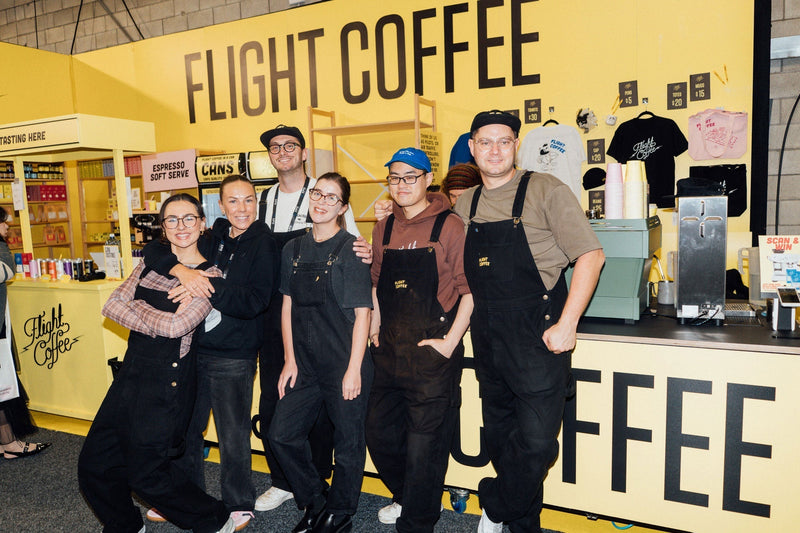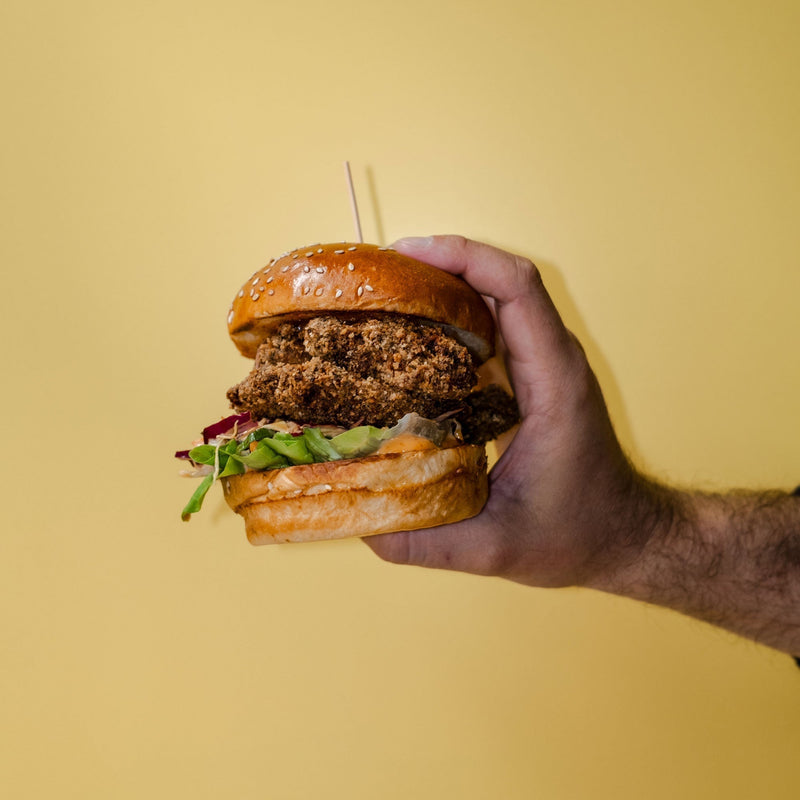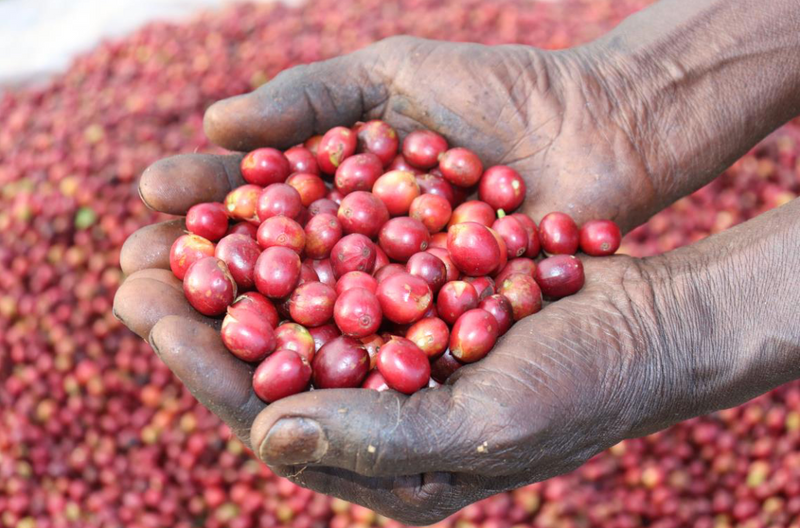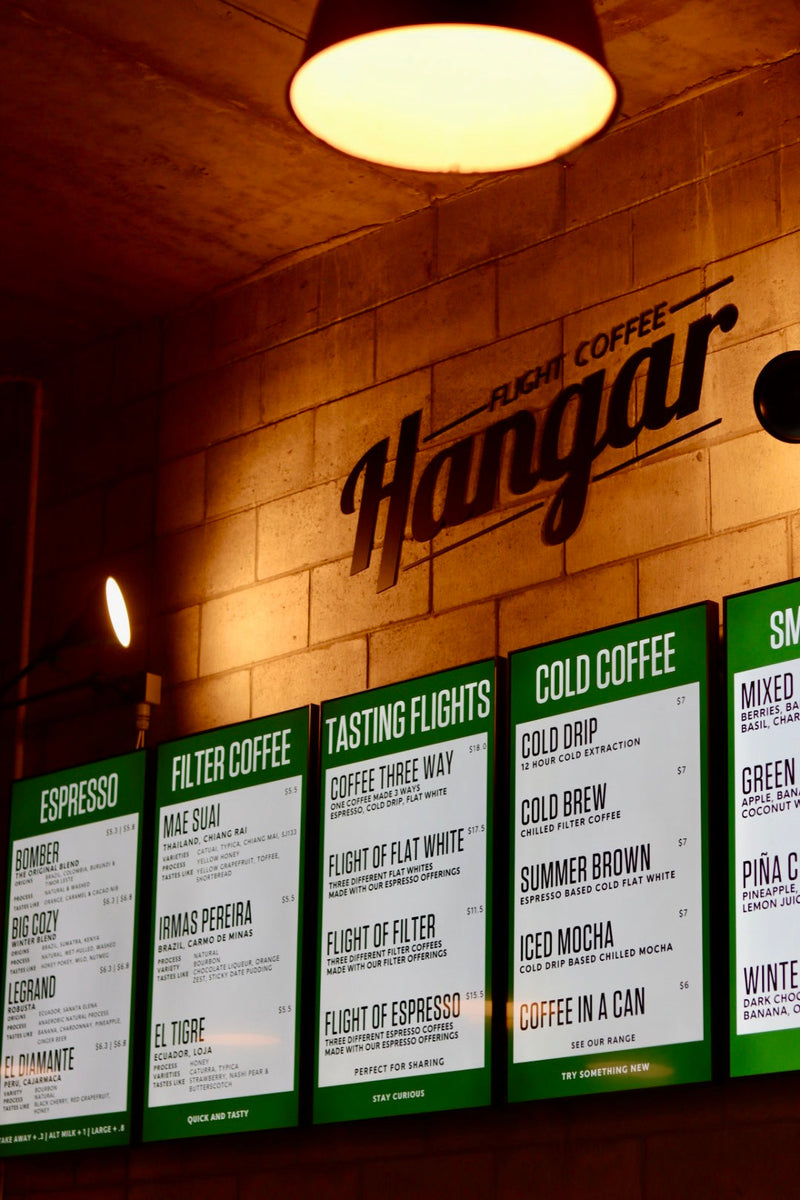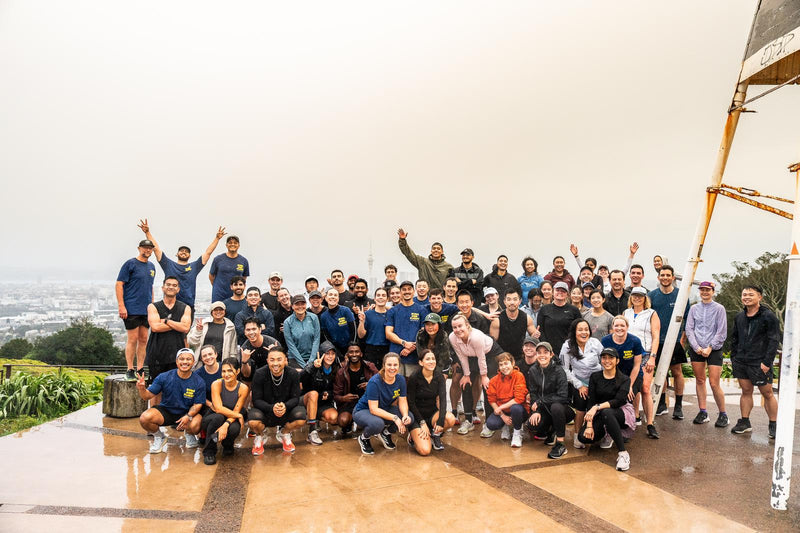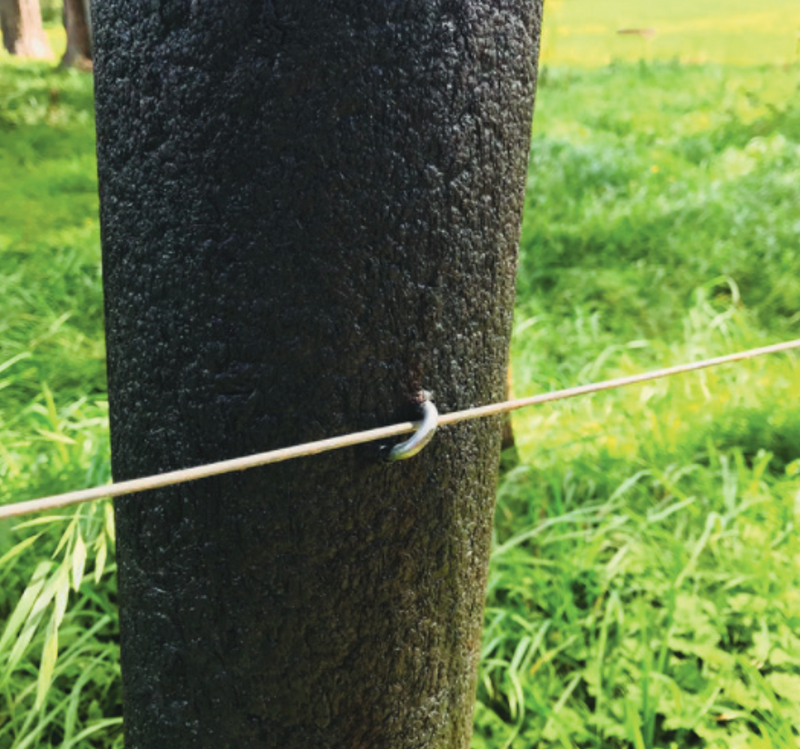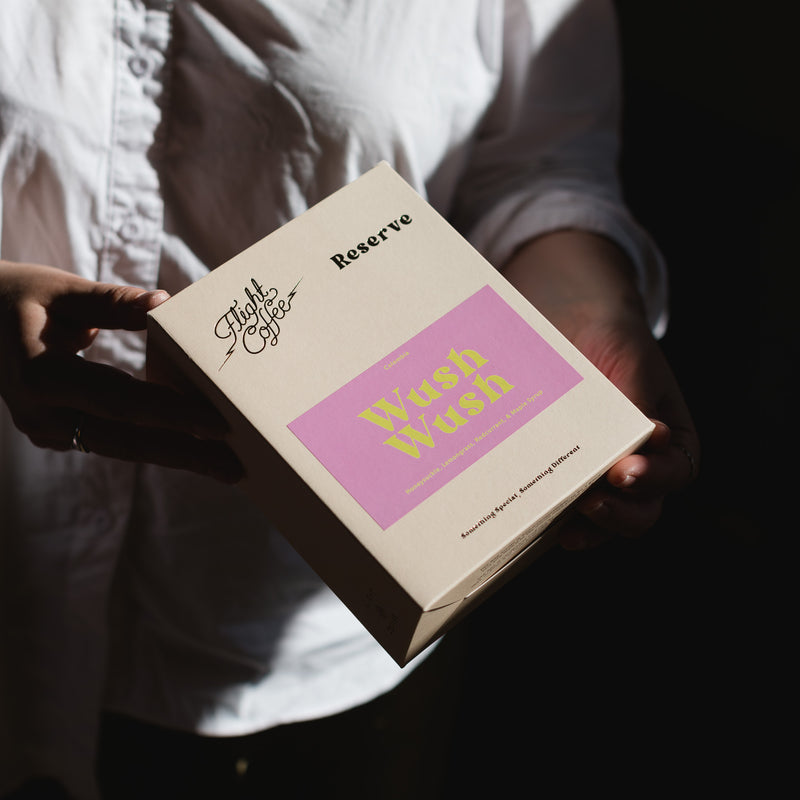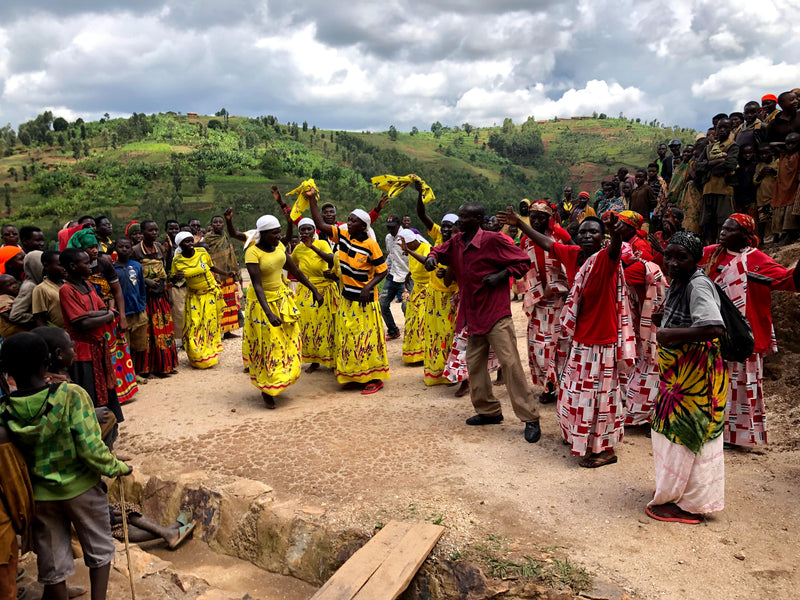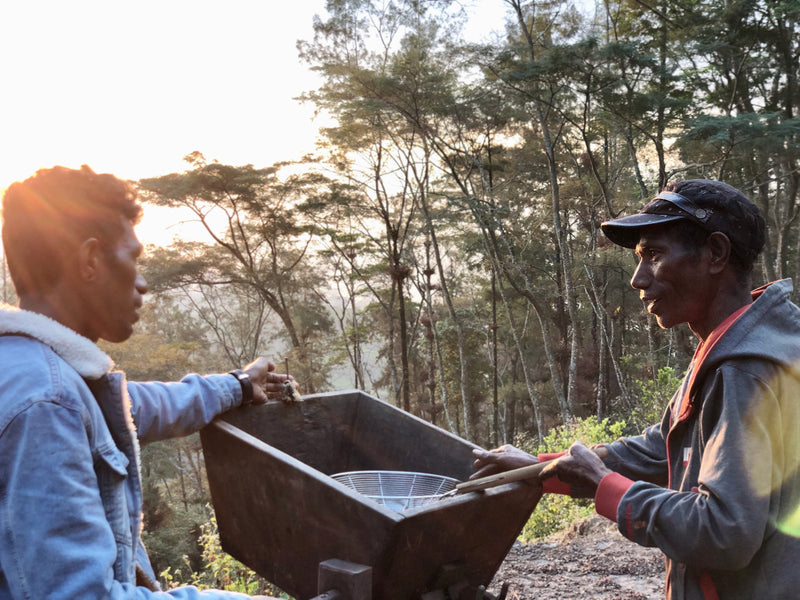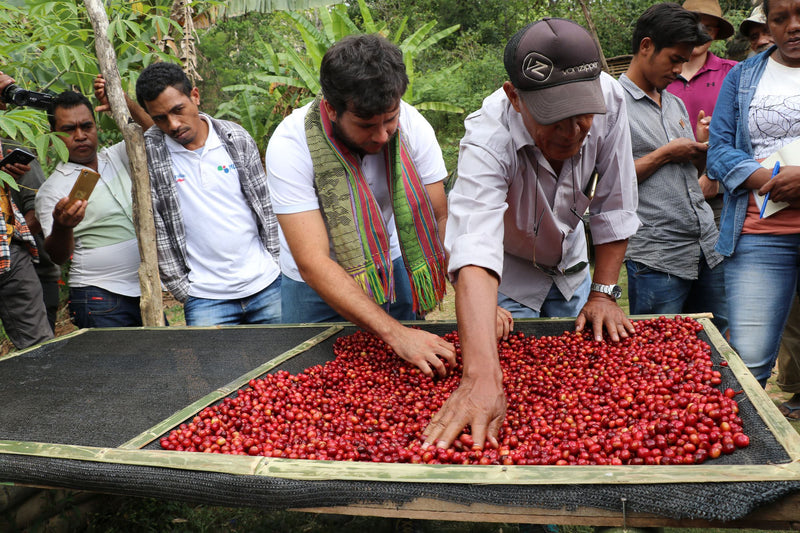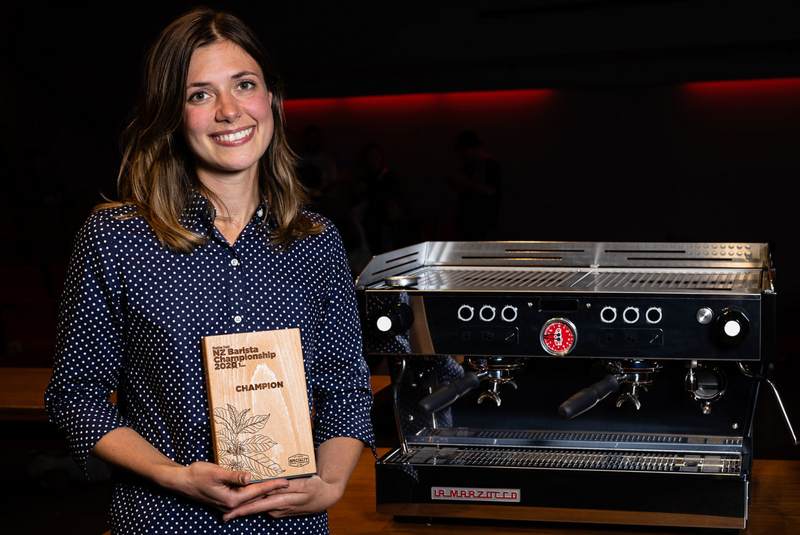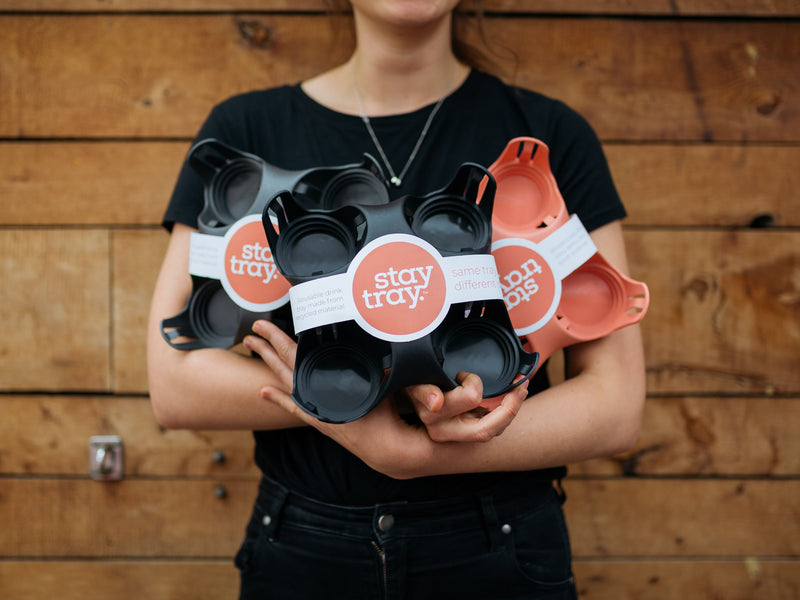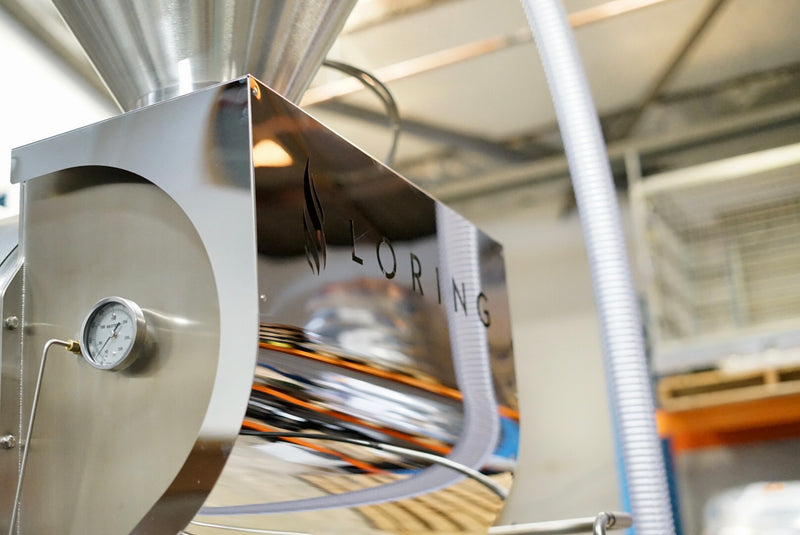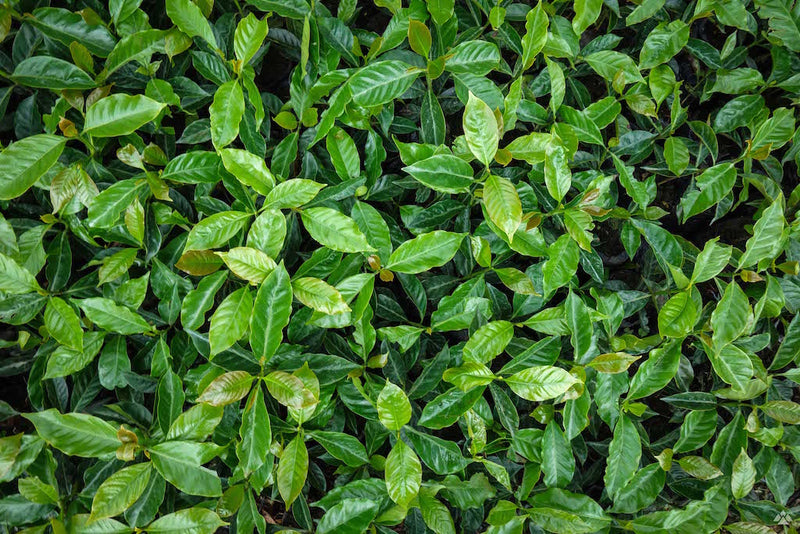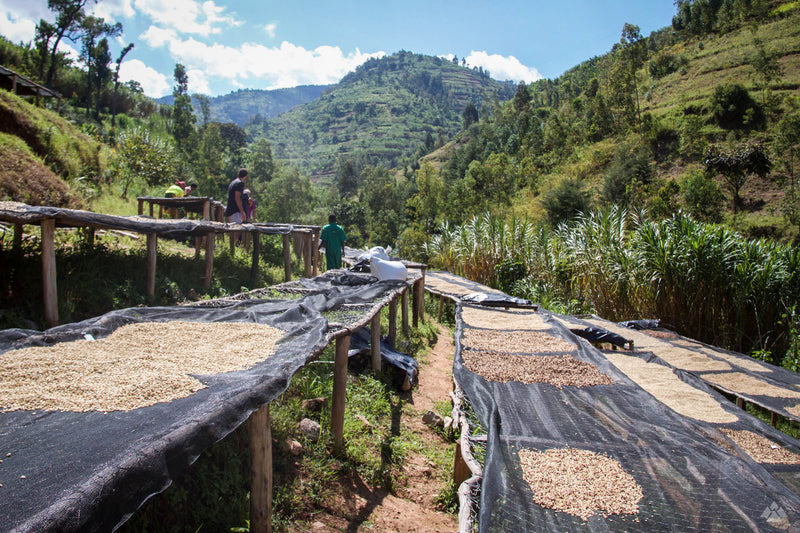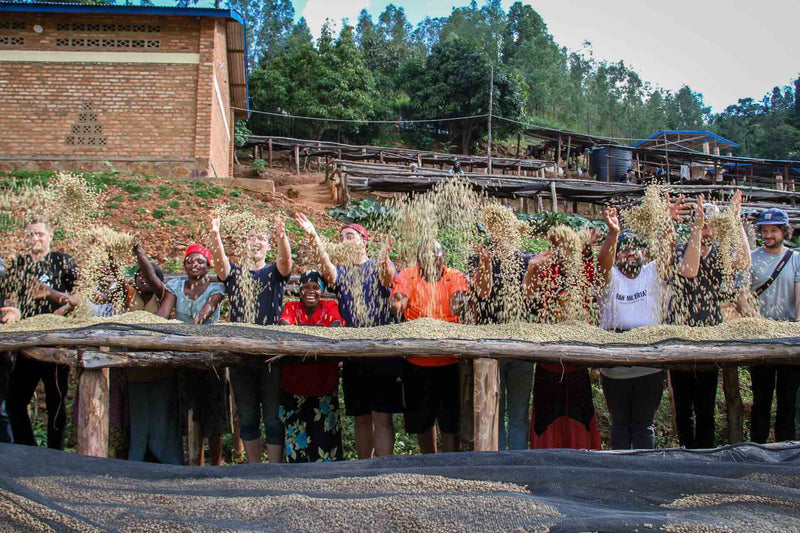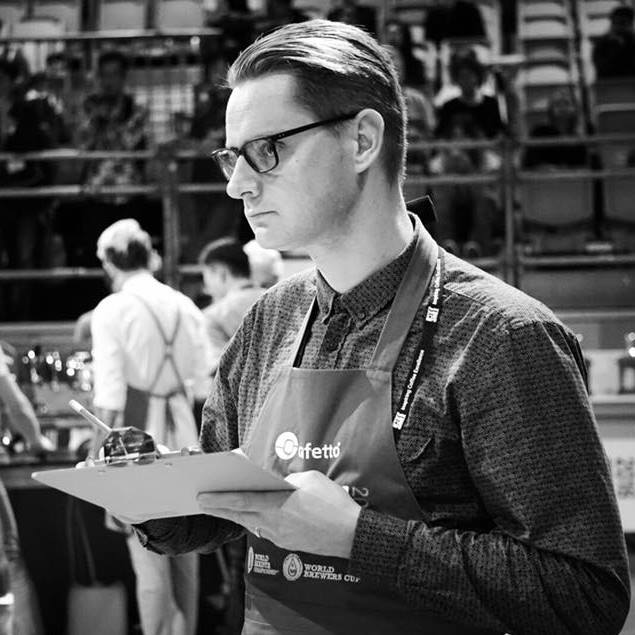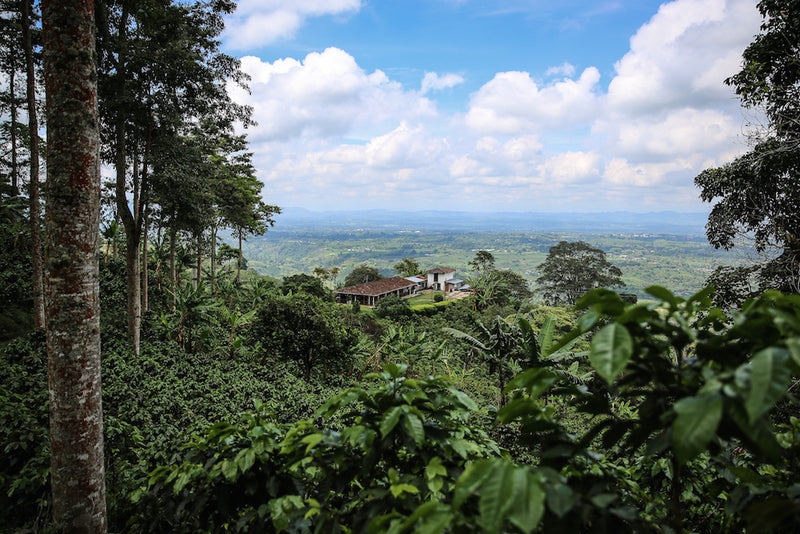Like farming of any kind at a small scale, growing and producing coffee is hard.
Generally, coffee farmers are faced with various environmental and economic challenges: erratic weather patterns, volatile and low market prices, and less interest from the younger generation to inherit farming from their parents just to name a few.
 So what are some solutions to these challenges? What role do roasters play in value-chain equity? Philosophically, are there obligations to be met by individuals and companies trading coffee? Matt put these questions to the audience at Re:Verb Japan as the final speaker at Tokyo Big Site. He compared the issues most coffee farmers face to those his family encountered throughout his childhood, growing up on a 2-hectare asparagus farm (the same size as the average Colombian coffee farm) in his hometown of Napier, New Zealand. Without being able to predict the year’s income accurately, investment decisions needed to focus on hedging risk and lowering costs short-term. This situation is also what he sees playing out in the neighbourhood these days as a coffee farmer in Calarca, Colombia. Matt drew these parallels to emphasise that no matter what, where, or when you are farming at a small scale, price stability is essential when just about everything else is a variable.
So what are some solutions to these challenges? What role do roasters play in value-chain equity? Philosophically, are there obligations to be met by individuals and companies trading coffee? Matt put these questions to the audience at Re:Verb Japan as the final speaker at Tokyo Big Site. He compared the issues most coffee farmers face to those his family encountered throughout his childhood, growing up on a 2-hectare asparagus farm (the same size as the average Colombian coffee farm) in his hometown of Napier, New Zealand. Without being able to predict the year’s income accurately, investment decisions needed to focus on hedging risk and lowering costs short-term. This situation is also what he sees playing out in the neighbourhood these days as a coffee farmer in Calarca, Colombia. Matt drew these parallels to emphasise that no matter what, where, or when you are farming at a small scale, price stability is essential when just about everything else is a variable.

THE GOAL
The specialty coffee market provides a potential solution for some producers and roasters to curb price volatility. Raw Material (RM) is by no means the first project to tackle these issues. Governments, NGO’s, and private companies and other groups have been studying and working to solve income distribution inequity for a very long time.
The goal of RM is to ensure predictable income for the producers of high quality coffee, with much greater margins for those at the very beginning of the supply chain, in a way that is sustainable for the market purchasing it. As a coffee roaster and an importer, Flight and RM have the ability to scale. A roaster can buy and sell more coffee; a cafe can buy and sell more coffee; whereas a producer's income is limited by how much coffee they can grow with trees they have, and increasing farm size is a very high barrier to scaling. By ensuring as much money as possible gets upstream to producers in a smart, direct, and consistent way, this issue of limited scalability can be eased; producers can plan to invest in growing their farming businesses and improving quality.
BUYING PHILOSOPHY
 As a possible solution to the price volatility of the coffee market is Raw Material’s (RM) buying philosophy. This philosophy shares an understanding of producer costs that ensures a fair and relevant income for the production of high quality coffee and producer profitability. As a coffee roaster and an importer, Flight and RM have the ability to scale. A roaster can always sell more coffee; a cafe can always sell more coffee; where a producer's income is limited by how much coffee he/she can grow by the number of trees they have. By ensuring as much money as possible gets upstream to producers, RM attempts to solve this issue of limited scalability and help producers to reinvest in growing their businesses.
As a possible solution to the price volatility of the coffee market is Raw Material’s (RM) buying philosophy. This philosophy shares an understanding of producer costs that ensures a fair and relevant income for the production of high quality coffee and producer profitability. As a coffee roaster and an importer, Flight and RM have the ability to scale. A roaster can always sell more coffee; a cafe can always sell more coffee; where a producer's income is limited by how much coffee he/she can grow by the number of trees they have. By ensuring as much money as possible gets upstream to producers, RM attempts to solve this issue of limited scalability and help producers to reinvest in growing their businesses.
Raw Material pays a fixed price above the commodity and premium markets for high quality coffee, so producers are able to easily predict their income in a model that incentivises the production of high quality coffee. This also means that we have access to a lot of interesting and unique coffees, some of which we have already had the pleasure of roasting and brewing.

FIXED PRICES
Raw Material pays fixed prices based on quality and the cost of production, completely divorced from the commodity market price. Producers are therefore able to predict their income with greater accuracy, in a model that incentivises the production of high quality coffee. Downstream, this means that we have continuous access to a lot of interesting and unique coffees, some of which we have already had the pleasure of roasting and brewing.
This model is at the core of Raw Material’s philosophy and is currently being implemented in Colombia and Rwanda, with plans to extend to Burundi in the near future. So watch this space for some super exciting coffees coming your way! We will also be posting a link to Matt’s talk at Re:Verb when it is made available. This talk is well worth a watch. In classic Matt style, the first question for his Q&A was from himself: “Are these bananas just for show, or can we eat the set?”. And so the closing talk from Re:Verb Tokyo 2016 was with a “cheers/kampai” of bananas shared between Matt and host Kentaro Maruyama.
Another thing to keep an eye out for is the upcoming blog on our farm, El Fenix located in Quindio, Colombia. Purchased to help us further understand the needs of farmers, El Fenix also provides us with a platform to try out some really cool stuff. I’ve said it once before, and I’ll say it again: Watch. This. Space!
Find out more about RM @rawmaterial.coffee on Instagram for informative posts and stunning photos.
